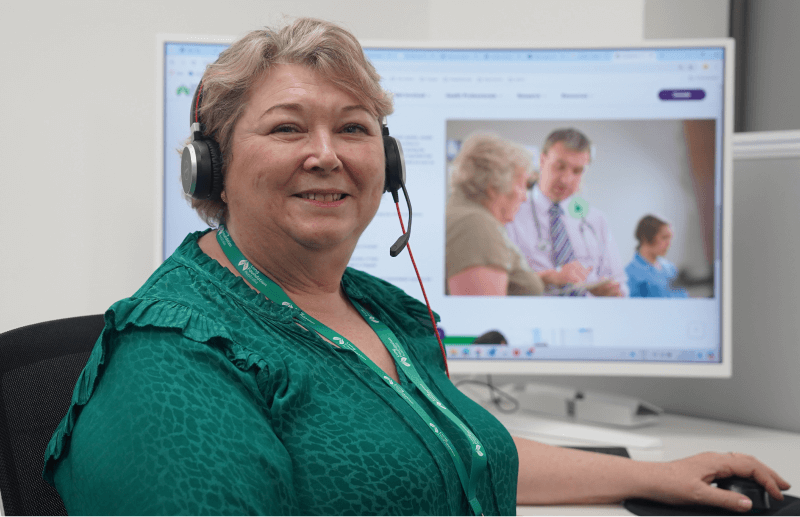Understanding your occupational lung disease diagnosis
The first step is understanding what lung disease you have. It’s important to take time to understand your diagnosis, what it means for you now, and what it might mean for the future.
You’ll probably have lots of questions, and that’s okay. Write them down before you see your doctor so you don’t forget anything. It’s a good idea to take someone with you to appointments to help you remember what your doctor says.
Some common questions to ask your doctor might include:
- What specific type of lung disease do I have?
- What caused my lung disease?
- What treatments are there?
- What are the side effects of treatment?
- How will this change what I do every day?
- Where can I get more information and support?
- If I’m eligible to make a compensation claim, what certification and medical reports can you give me about my lung disease?
- Do I need to quit or change my job?
- What would I need to do if I want to keep working?
- What work options do I have, and what can happen if I decide to keep working?
- Should I avoid specific environments, hobbies or workplaces?
Our blog has a post about considerations and questions to ask your doctor if you are diagnosed with silicosis. This post may also help you consider other related aspects if you have a different occupational lung disease.
Take time to process
When you’re first diagnosed, it’s normal to feel scared, sad, worried, angry, or frustrated. Yours and your family’s lives might change, and it can take time to get used to some of these changes. You’ll probably be faced with lots of information all at once, some big decisions to make, and many different feelings to deal with.
It’s really important to look after your mental health during this time:
- Talk to someone you trust about how you’re feeling
- If you’re having a hard time, talk to your doctor about seeing a mental health professional, like a psychologist or social worker
- Your doctor can help you make a mental health care plan to get support
- Take things one step at a time. You don’t have to figure everything out at once
- Ask for and accept help from friends and family. Try to stay connected with them, even if it feels difficult
- Think about joining a peer support group to talk to others who understand
- Be kind to yourself. Accept that you’ll have good days and bad days.
Legal and financial information
Workers’ compensation
If your doctor thinks your lung disease is connected to your current or past job, you should make a workers’ compensation claim as soon as possible. Time limits can apply, and these can be different around Australia. The compensation might help with:
- Medical expenses and treatment costs
- Loss of wages or profit
- Care for nursing and home help services (including childcare costs)
- Pain and suffering or a statutory lump sum (one-time payment)
Trade unions
If you are a member of a union, they can help you get access to support after being diagnosed with an occupational lung disease. Unions represent the interests of employees and can speak with employers on their behalf.
Get advice
Getting independent legal and financial advice is recommended, whether you’re making a claim or not. Talking to a professional can help you to understand your options better.

Occupational lung disease social worker service
Our social worker service provides information, advice and referral options for people living with occupational lung disease, their families and carers. Call 1800 654 301 for a free telephone appointment or book online.
Resources
My Silicosis Management Plan
The My Silicosis Management Plan is a free, practical, patient-focused tool designed
Compensation and Occupational Lung Disease
Occupational lung diseases (OLD) are caused by inhaling hazardous agents like dust,
Compensation and occupational lung disease
Occupational lung diseases (OLD) are caused by inhaling hazardous agents like dust,
Was this page helpful?
Good job! Please give your positive feedback
How could we improve this post? Please Help us.